Chuck Baclagon
Working this year in this new office space signals the beginning of a new chapter in the collective life of 350 Pilipinas as it now operates in a new and relatively different environment.
We have always imagined the office space as an experiment of exploring new ways of organizing around a shared space.
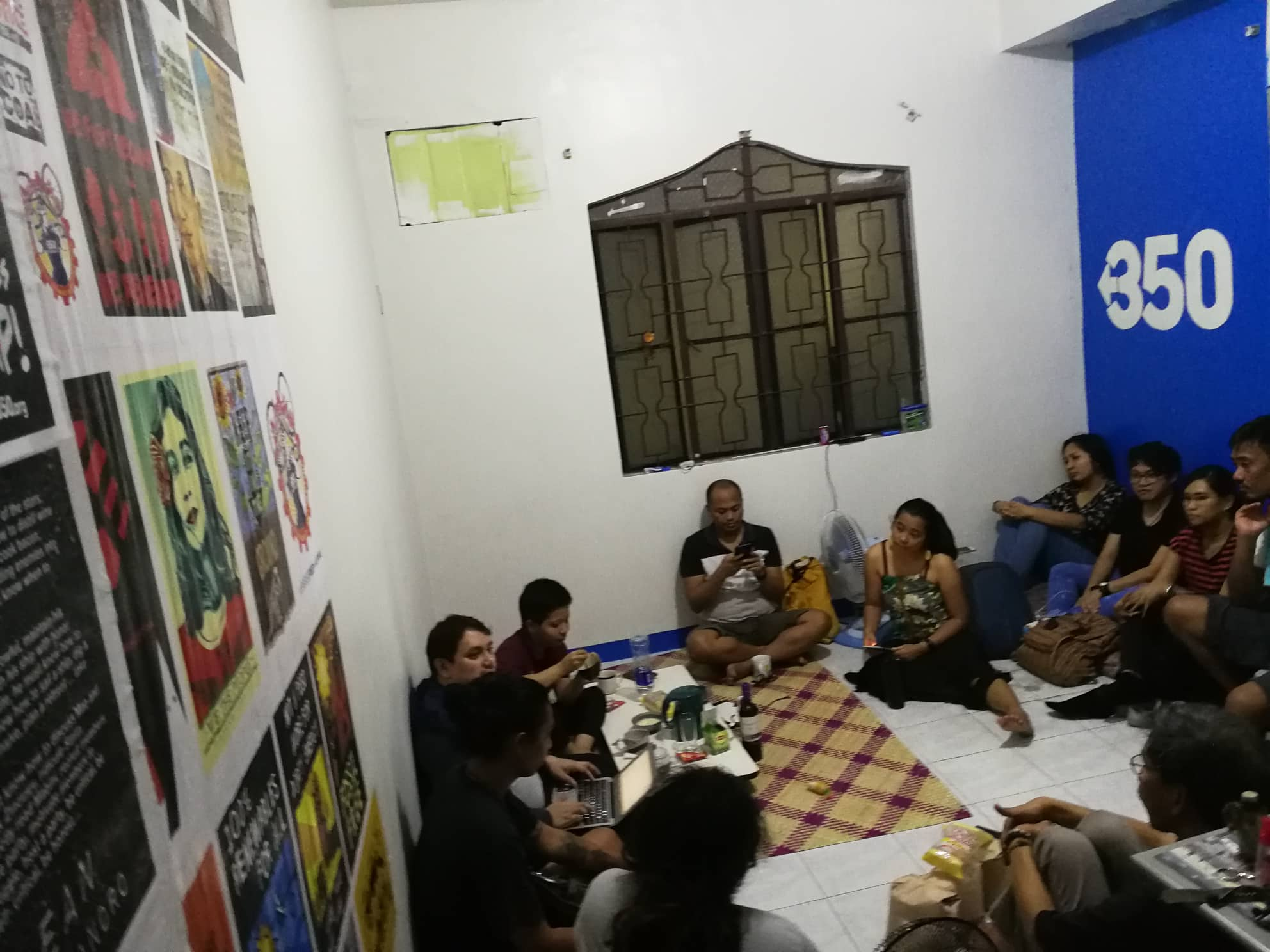
First meeting held at the old office in Magiting, on the foreground are the campaign posters that we turned into makeshift wallpaper using a concoction of wheatpaste and emulsion shared to us by Lynne Brasileño, who greatly contributed to the aesthetic and practical layout of the office which enabled the collective to maximize the very limited space.
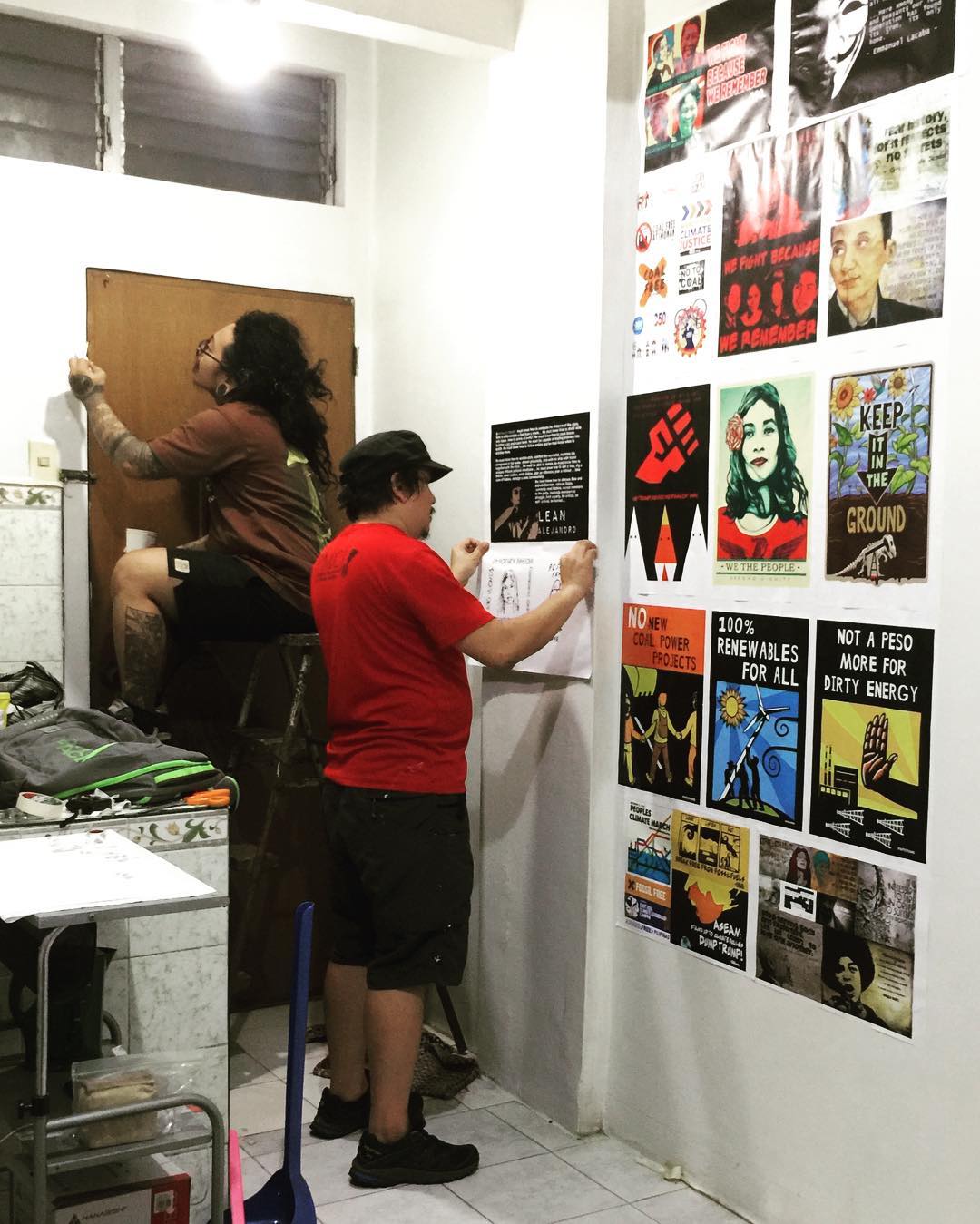
With Fread De Mesa, decorating the place sometime in December 2018. Fread, is our longest active volunteer, who has been with 350 since 2014 and has been involved in almost every single action we’ve done, and has close working relations with many of our partner organizations.
Our first attempt at holding residence on our own office space in Magiting Street, Teachers Village happened at particular historical conditions that informed much of the choices and risks we took: Duterte’s War on Drugs, the heightened state of siege, the bent of political consciousness towards authoritarianism under this current regime.
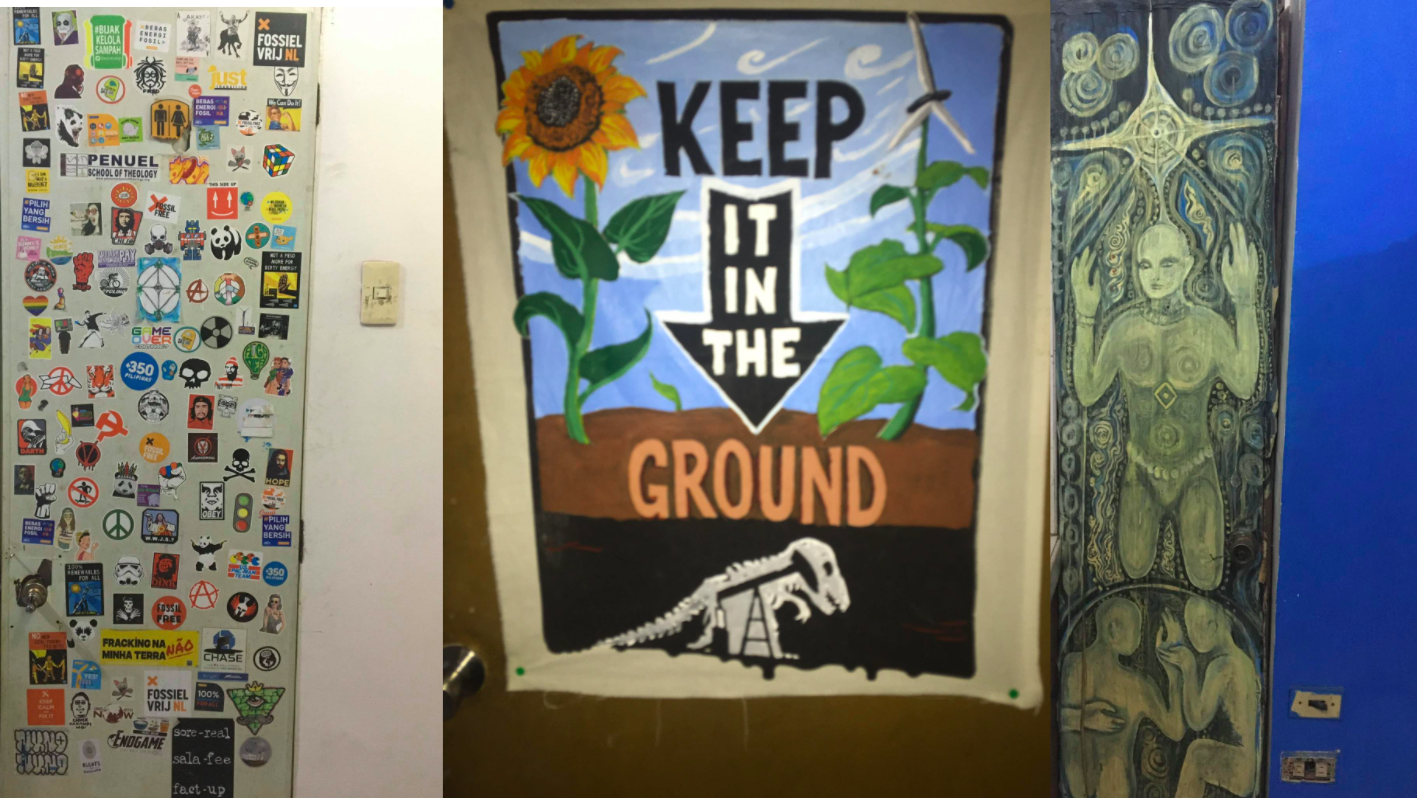
The different doors were decorated DIY style with banners, stickers, and excess paint that were used to make random artwork by Bong Dela Torre, a longtime active volunteer who spent the most time in the office space and sharing very keen insights on how rituals and spirituality also have an important role in advocacy work and the wellbeing of activists.
In the more than a year of occupying the spot we planned and did our most daring actions; held over a dozen volunteer orientations; hosted discussion groups for different collectives; provided safe spaces for both radicals and reformers, and played a role in fostering the birth of new youth-led climate movements.
The office was sort of a field trial in redefining space in the context of change-making.
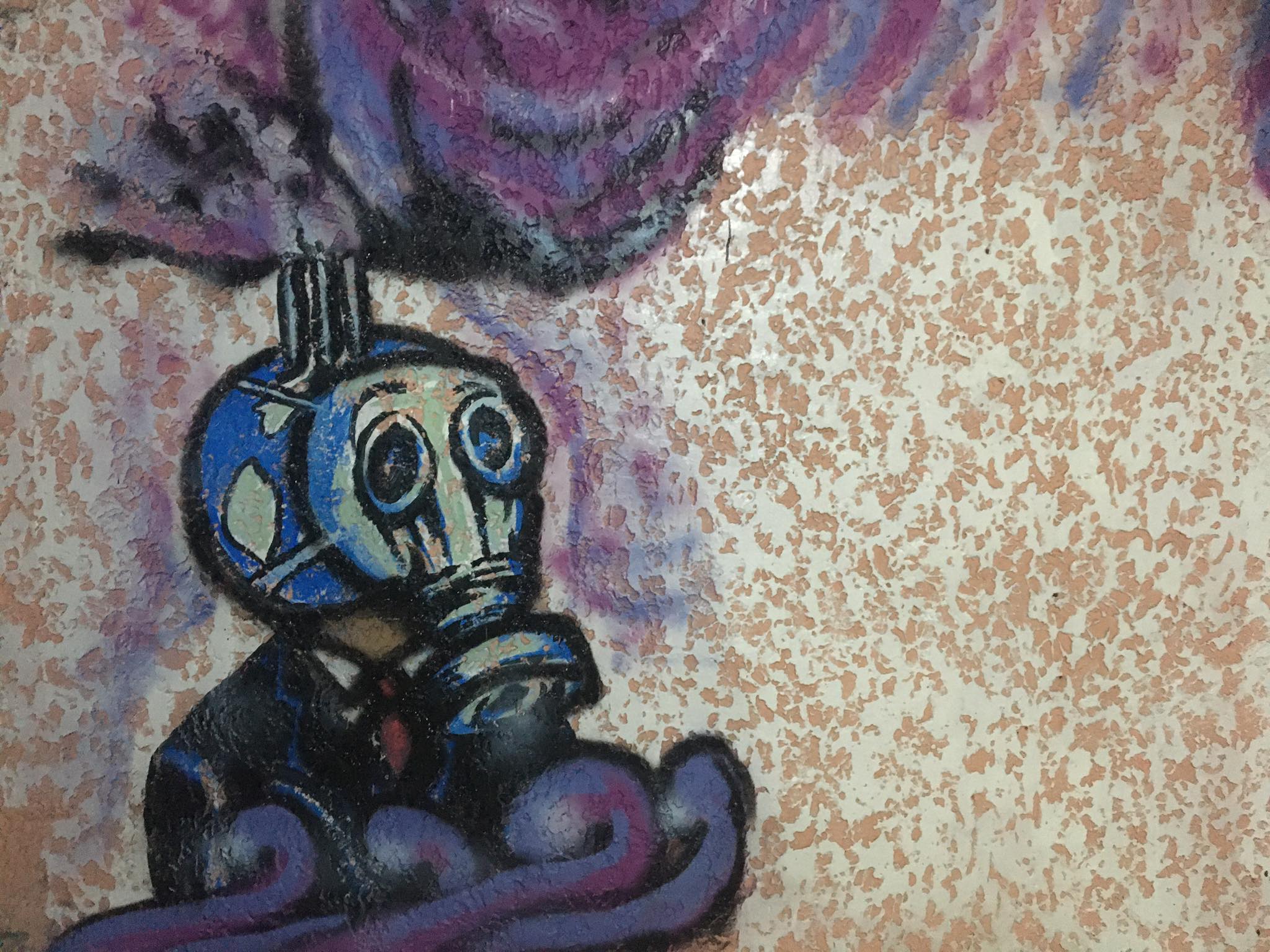
A spraypainted graffiti made by Johnny Guarin at the workshop area. Much of the protest artworks that we used between 2019-2020 were made by Johnny in the same space.
It means answering difficult yet practical questions: how can we share limited resources? How can we be sustainable? How could we make it inclusive? How can it be a safe space? How can it be more gender equitable and friendly? Should we invest in CCTV cameras? Do we ask the landlord if we can set up solar panels? Should we build bike racks? Who should take out the trash once work time is finished? What about zero-waste? Should pets be allowed in the office space?
Like in many tests, we aced some but likewise flunked on some, and in the process, we learned a lot about ourselves and each other, about the tedious task of organizing, and for myself about what privilege is and how it must be recognized and kept in check.

A panorama of the workshop area taken a few weeks before we moved out of the space.
The curveball of a pandemic was thrown in last March 2020 and made it difficult for us to keep holding space while following minimum health and safety protocols. The move was as controversial as it was also necessary.
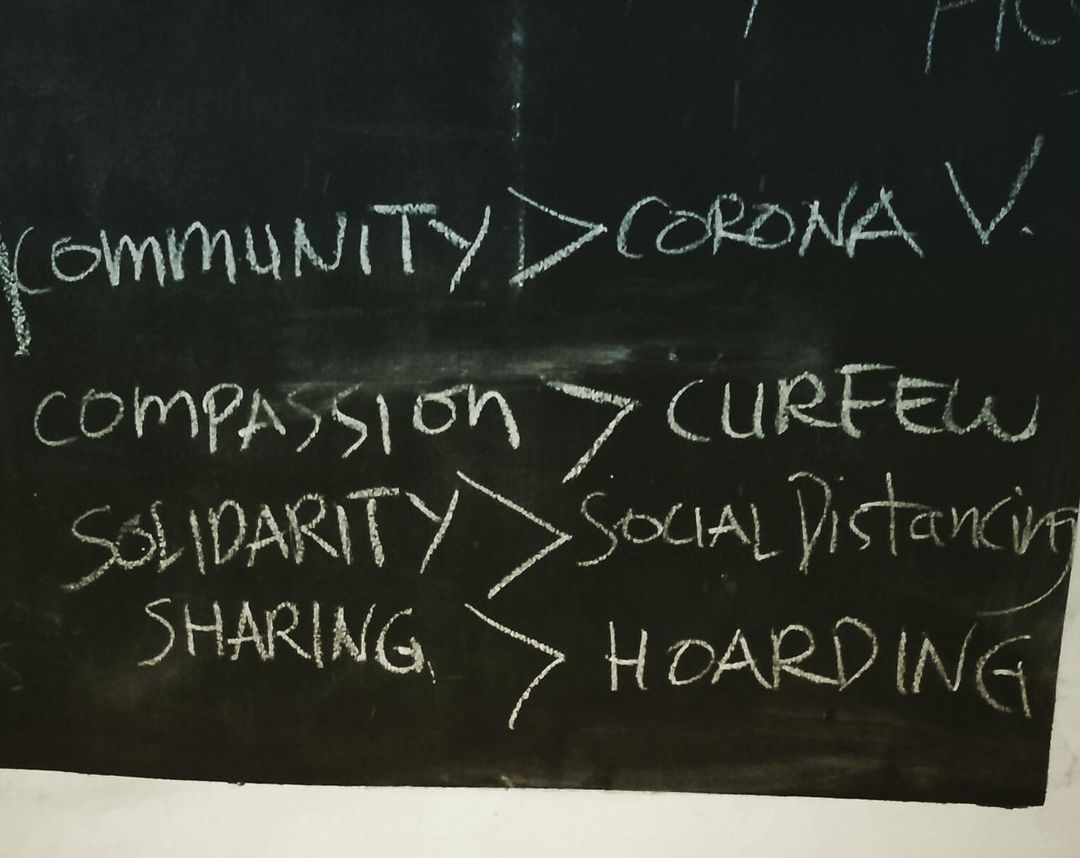
The blackboard that was made with glossy black paint on the center wall of the office area was among the most used facility in the space. The scribbles in the photo were written the day the government announced the national lockdown following the surge in COVID-19 cases in the country.
What I learned after being deeply involved with the volunteer space is that it doesn’t matter how many books you have read describing how the world could and should be like. It is by being part of the work laying the groundwork for our collective vision of the kind of world we want, that you begin to feel what it could be like and that experience will always inform you going ahead.
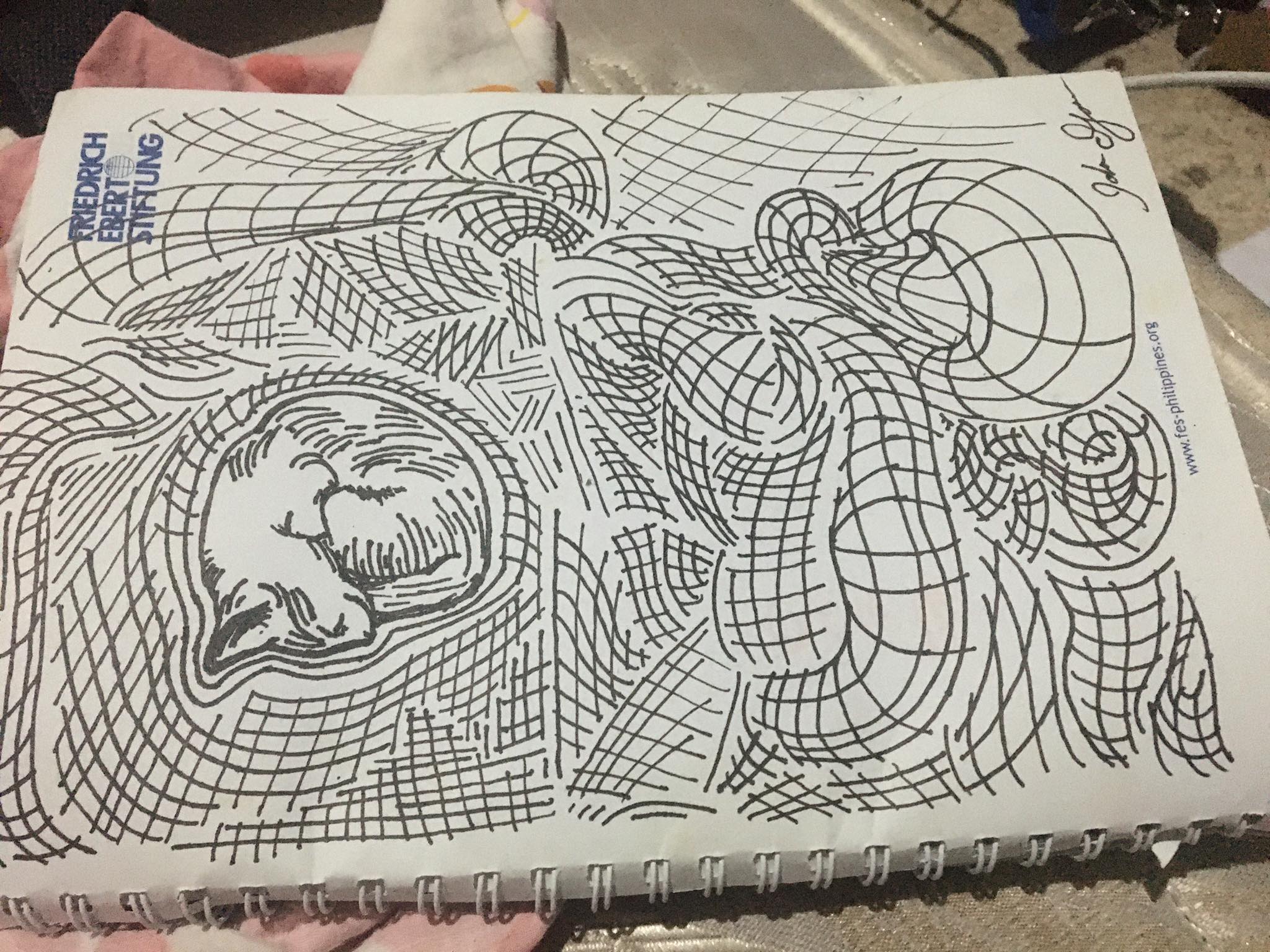
Among the things we found lying around when we were packing for the transfer to the new office was this doodle made by Johnny, in between pages of a notebook that we used as a log for office visitors.
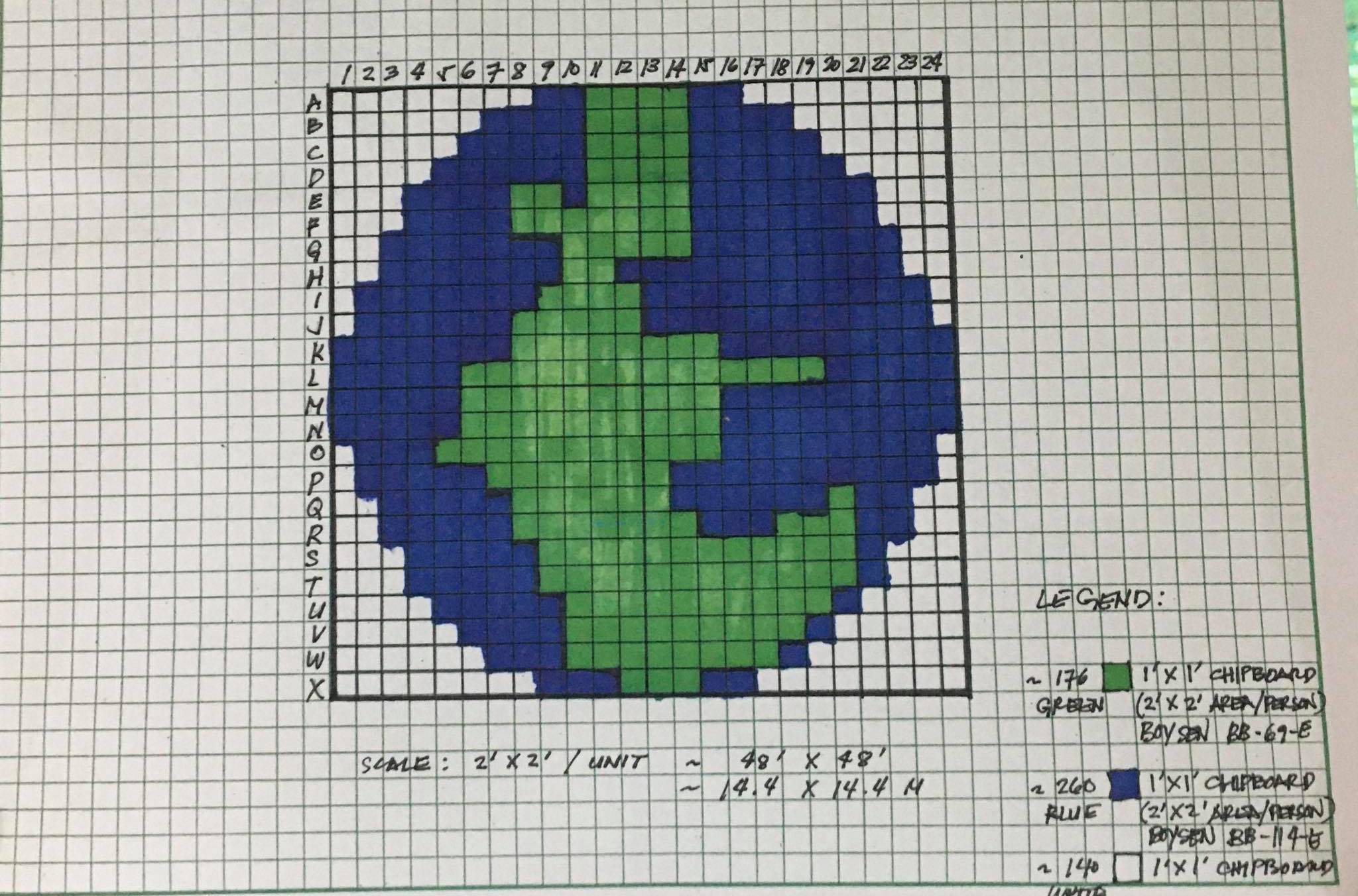
While clearing the drawers we found this schematic diagram made by Lynne, of the earth banner that we tried to organize with Youth Advocates for Climate Action Philippines, for the September 2019 Global Climate Strike.
For me being in the midst of those two studio units was really an example of not just modeling the world we want to live in. But it is more importantly an exercise of being actively involved in building it.
The office space was where I was able to shed the naivete of my ungrounded idealism as I came face to face with the complex realities of change-making in a microcosm of a space.
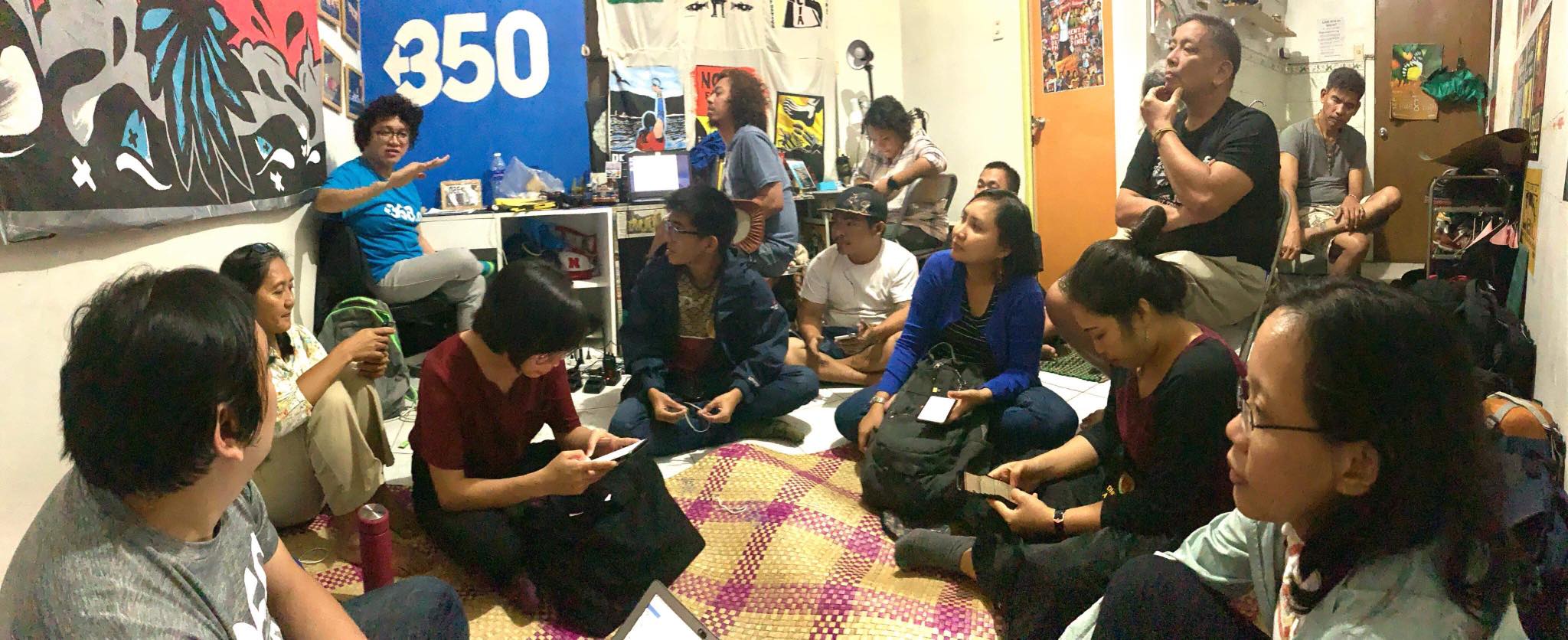
Final briefing for the September 2019 Global Climate Strike, having that many people in such a small room is now impossible given the current pandemic.
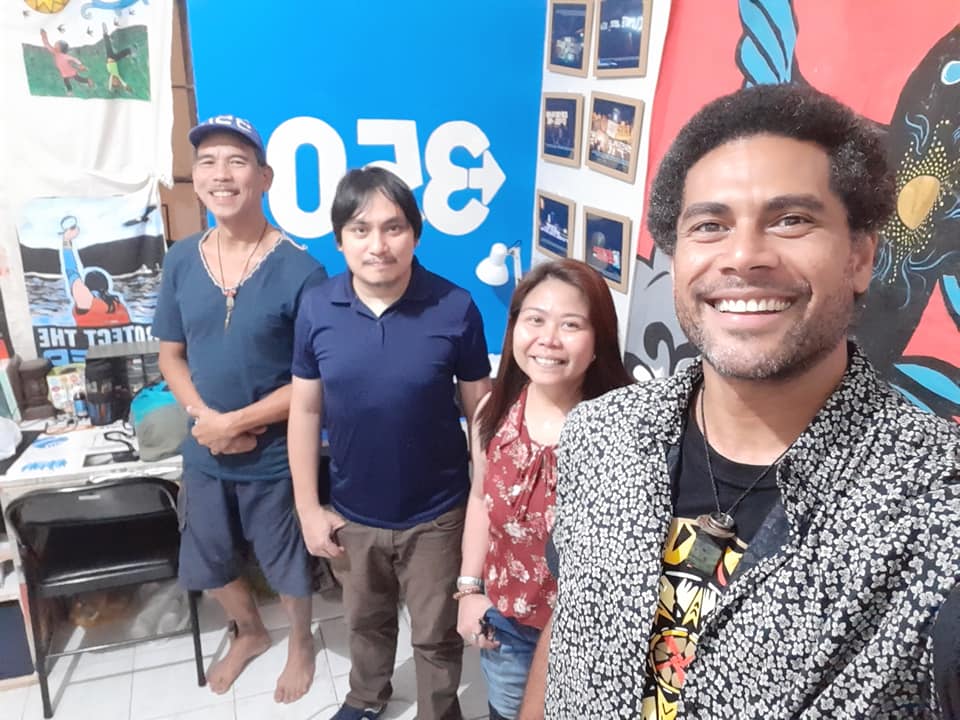
Me and Bong With our Asia Director, Norly Mercado and Fenton Lutunatabua who was then leading the 350 Pacific team. The curtains on the background were art pieces made by Johnny out of the silk-screened banners that were given to us by David Solnit during the global 350 staff retreat in March 2019.
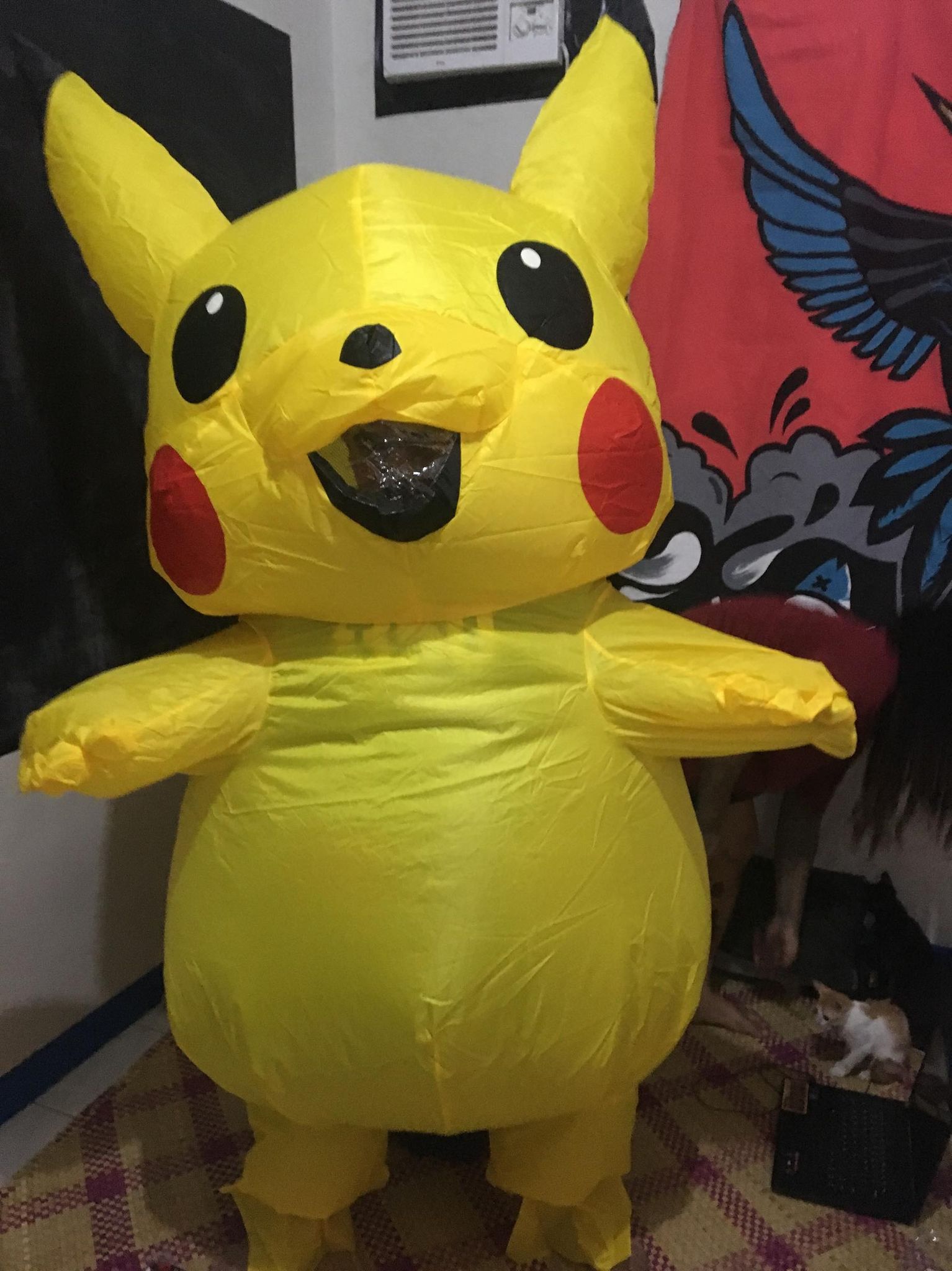
Our logistics volunteer Ador Norte, trying out the Pikachu costumes that we would eventually use for our action at the Japanese Embassy in Manila for the G20 Summit in June 2019.
The interesting thing about history is that it only moves forward–and that is how it all began. It was also around this quarter in 2018 when 350 Pilipinas decided to find its own space after spending 3 years being hosted inside another organization’s office space.
We wanted to define our collective identity apart from the organization that hosted us and now we are back at doing that again this time because circumstances deem it necessary.
As I bid my final glance at the space that was once our office I looked with eager anticipation at opening the door and working again on the new one. Hopefully made wiser by the bittersweet lessons learned from our tiny space in Magiting Street.
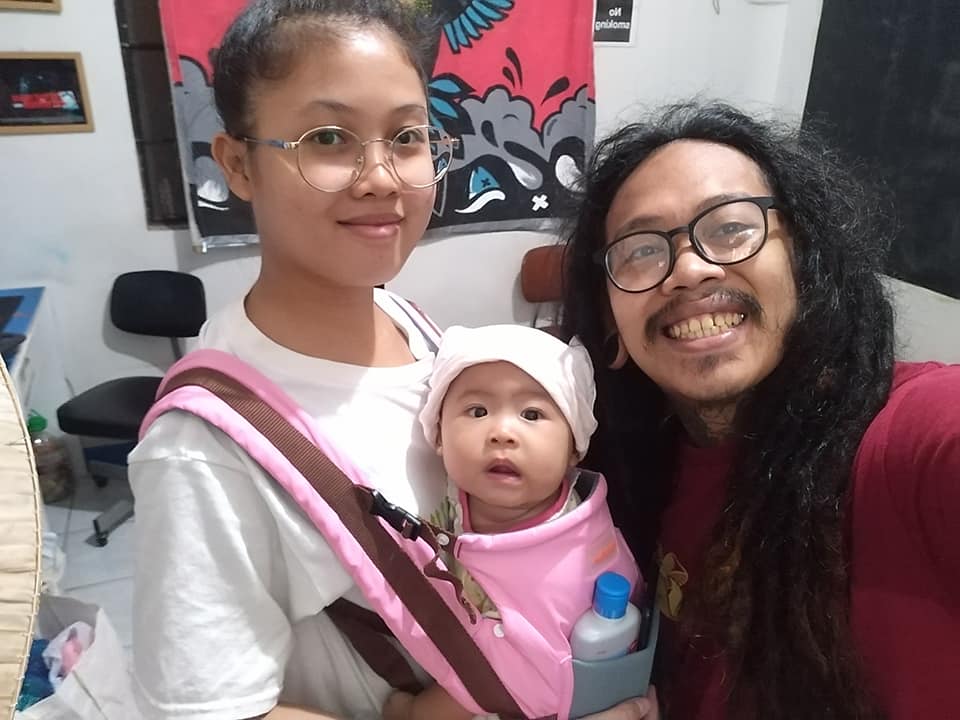
The office space in Magiting was also where we welcomed Akasya De Mesa, daughter of Fread and Angelyn longtime volunteers who also served as custodians of the space for most of 2019.
